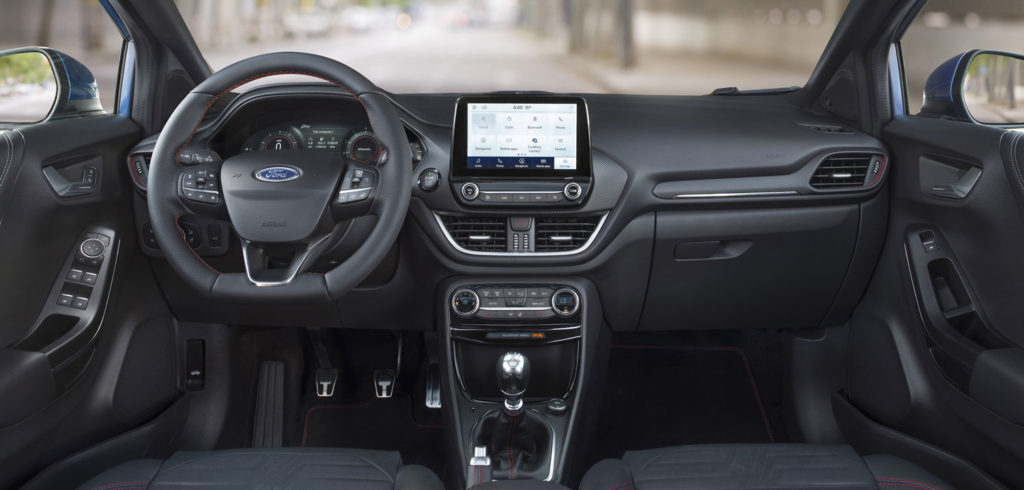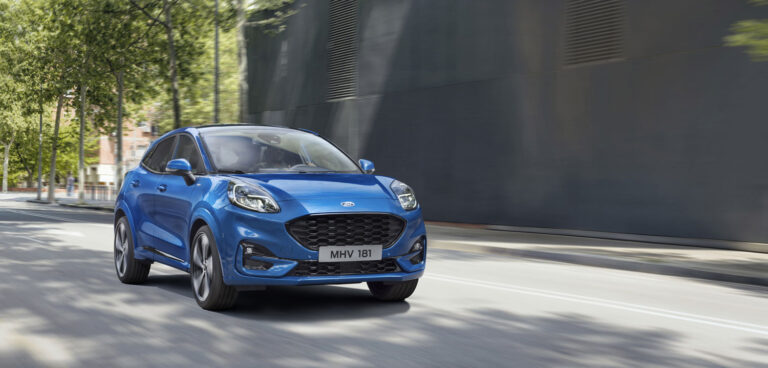Ford has unveiled its new Ford Puma – a compact crossover equipped with a mild-hybrid technology. The EcoBoost 48V hybrid powertrain integrates electric torque assistance with a low-friction, three-cylinder 1-liter EcoBoost gasoline engine to deliver up to 155ps.
The MHEV technology enhances Puma’s 1-liter EcoBoost unit with an 11.5kW belt-driven integrated starter/generator (BISG). Replacing the standard alternator, the BISG enables recovery and storage of energy usually lost during braking and coasting to charge a 48V lithium-ion air-cooled battery pack.
The BISG also acts as a motor, integrating with the three-cylinder engine and using the stored energy to provide torque assistance during normal driving and acceleration, as well as running the vehicle’s electrical ancillaries.
Offered in 125ps and 155ps variants, the self-regulating mild-hybrid system continuously monitors how the vehicle is being used to determine when and how intensively to charge the battery for optimal benefit, and when to utilize the stored battery charge.
The system enables torque substitution, which deploys the electric motor functionality of the BISG to provide up to 50Nm of torque and reduce the amount of work required from the ICE for a fuel efficiency improvement of up to 9%, based on WLTP analysis.
Torque substitution also contributes to CO₂ emissions from 124g/km and fuel efficiency from 5.4l/100km for the 125ps variant; and CO₂ emissions from 127g/km and fuel efficiency from 5.6l/100km for the 155ps variant.
Ford has also introduced torque supplementation, which deploys the electric motor functionality of the BISG to increase the total torque available from the powertrain by up to 20Nm above the level available from the engine alone at full load – and deliver up to 50% more torque at lower RPM.
The BISG has also enabled Ford engineers to lower the EcoBoost engine’s compression ratio and add a larger turbocharger for more power, by mitigating turbo-lag using torque supplementation that also rotates the engine faster for maintained turbocharger boost response.



